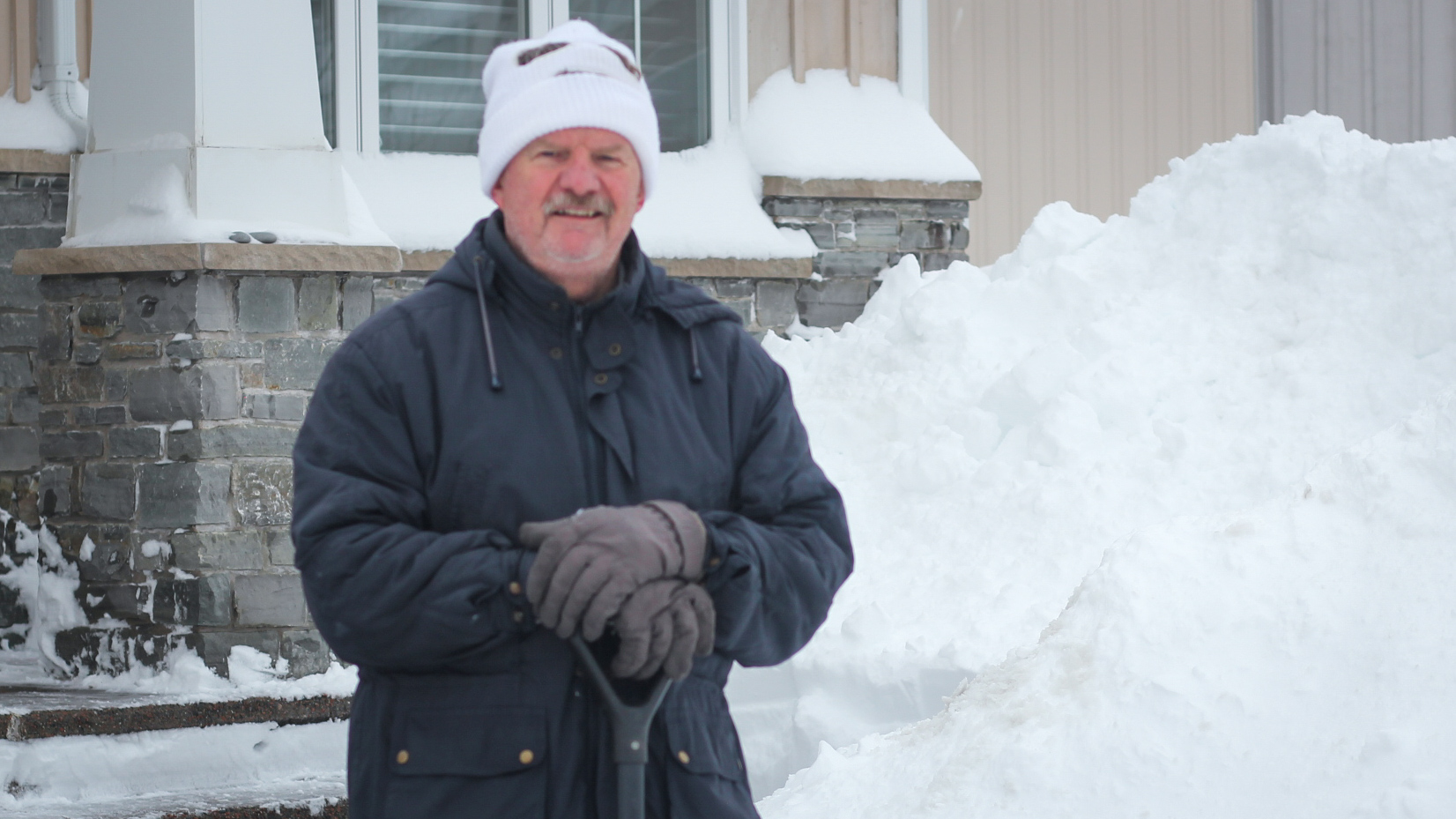Winter, shovelling snow and heart attacks
Weekend blizzard leads to snow removal marathon, but be wary of cardiac trouble, says expert

caption
Kevin Ferdinand shovels his driveway after a heavy snowfall in West Bedford on Monday.Wayne Gaigneault experienced a heart attack at age 54. Now, at 67, Gaigneault says he has three stents and a blockage in his heart.
Yet Monday morning, Gaigneault was out shovelling heaps of snow off his driveway in West Bedford.
“I’m not worried about another heart attack,” he said. “I like to pace myself and use the proper tools for shovelling.”
Like Gaigneault, many Nova Scotians were out shovelling snow on Monday after the three-day snowstorm that dumped 40-60 centimetres of snow on the city. Related stories
However, intense bouts of exercise such as shovelling can be a health risk.
“In the winter months, the rate of heart attacks increases. Especially after a snowfall, when people are out shovelling trying to clear away snow,” said Hilary Richardson-Murphy, senior advisor of health policy and systems at the Heart & Stroke Foundation of Canada.
“Mortality rates for heart attacks are 10 per cent higher (in winter) and for the elderly that number is even greater,” said Richardson-Murphy.
The foundation announced last week the number of cardiac arrests in Canada is significantly higher than previously estimated. About 60,000 out-of-hospital cardiac arrests happen in Canada each year — one every nine minutes. Critically, the study said, only one in 10 people who experience a cardiac arrest out of hospital survive and nearly half happen to people under the age of 65.
Richardson-Murphy said that the cold weather can “increase your heart rate and blood pressure, making your heart work even harder to keep your body warm and increasing your risk for blood clots and stroke.”
In the Maritimes, where the snow mixes with ice and rain, the snow becomes heavy. Richardson-Murphy said people should avoid what is called “snow-related-exertion.”
After a significant snowfall like this past weekend’s, it could mean moving hundreds of pounds of snow in a short period of time, resulting in a strain on the heart.
The foundation recommends considering snow shovelling like most exercise. It suggests warming up muscles, stretching, taking breaks often while shovelling. They also suggest dressing in layers which can always be removed.
Finally, Richarson-Murphy said it is important to “shovel while the snow is still fresh, if possible.” This will help you avoid the heavier snow built up of ice and slush, she said.
Some are already using these tips in their shovelling this past weekend.
Kevin Ferdinand has been doing strength and resistance training at the Nova Scotia Cancer Centre, where he said he is involved in clinical trials about exercise.
“This works for me,” said Ferdinand, adding that while he worries about a shovelling-related heart attack, he has taken steps to minimize the risk.
The foundation said the number of heart attacks has been increasing and people need to do more to remain physically healthy in the winter months.
About the author
Cam Kinley
Cam is an aspiring video journalist from Toronto, ON with a special interest in sports media and broadcasting. He currently works for the Canadian...
